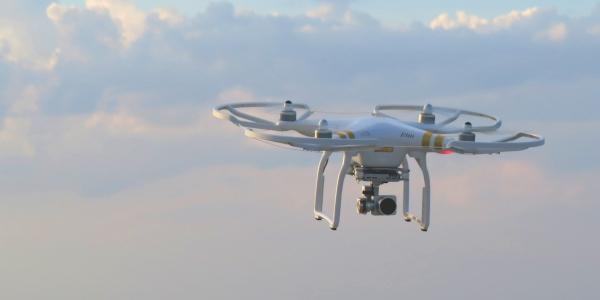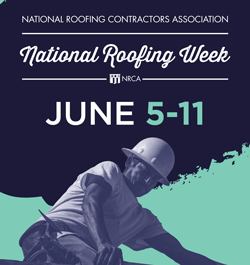Employers Need to Tread Carefully When Using Drones on Projects

By Kyle Gretel, Cotney Construction Law.
Potential pitfalls of drone use on construction sites.
Unmanned aerial vehicles (UAVs), more colloquially known as drones, are the topic of conversation in multiple industries and are used in a variety of different applications. From delivery of a kidney to a transplant recipient to aerial photography, drones have a wide variety of applications. While drones are already being used on construction sites across the country, not many have stopped to ask what potential risks are associated with this use.
Drones provide a number of obvious benefits when used on a construction site. They can be used to decrease the amount of time it takes to complete a survey of the site and can be used to monitor progress on busy construction sites. Despite the clear advantages provided by drone use, contractors must be aware of the potential liability from using drones on a job site.
As drone use increases so does the risk that an accident may occur from using drones on construction sites. In September 2018, a drone performing an inspection of the Millennium Tower in San Francisco lost GPS signal and crashed to the ground. In January 2018, a pilot crashed a drone into a crane while performing a survey of a construction site in the UK. While these accidents did not result in substantial property damage or personal injury, they highlight the potential risks associated with using drones to perform surveys and other job site inspections.
It is not difficult to imagine a scenario where, as in the previous drone crash examples, a pilot loses signal or fails to properly pilot the drone causing the drone to crash and injure an individual standing beneath it. In 2014, a man was killed on a construction site when a one-pound tape measurer fell from a building striking him on the head. An average light-to-middle weight drone weighs in anywhere from 5 pounds to 50 pounds, more than enough to cause lethal injury to anyone struck by one falling from the sky.
The first step to ensure drone use on a project site does not result in any personal or property damage is to verify the person piloting the drone has the required qualifications. The Federal Aviation Authority (FAA) requires the drone pilot to obtain a Remote Pilot Certificate or be under the direct supervision of a pilot who does have the Certificate. Potential pilots must pass an initial aeronautical knowledge test covering topic areas such as regulations relating to drones, emergency procedures, and aeronautical decision-making and judgment.
Second, and working hand-in-hand with the first step, employers must follow the requirements found in the FAA’s “Small UAS Rule 107.” Part 107 provides operational limitations that include a limit on drone weight; line-of-sight requirements; flight responsibilities; and other important limitations employers need to be cognizant of.
Third, employers should consider whether the benefit of using a drone on the project is worth the potential liability stemming from an accident and whether the employer’s CGL policy covers accidents related to drone use. Many insurers require employers that employ the use of drone technology on job sites to abide by the FAA rules and regulations governing drones. Failure to abide by the FAA guidelines can result in your insurer denying coverage for any accident stemming from drone use.
It's clear that drones provide construction employers a brevity of potential benefits, however employers should ensure proper guidelines are in place to prevent personal or property damage on project sites. Employers should further evaluate, in light of the potential benefits, whether drone use is in its best interests.
To request a consultation with one of our construction attorneys, please call us today at 904.425.5030 or submit our contact request form.
Disclaimer: The information contained in this article is for general educational information only. This information does not constitute legal advice, is not intended to constitute legal advice, nor should it be relied upon as legal advice for your specific factual pattern or situation.






















Comments
Leave a Reply
Have an account? Login to leave a comment!
Sign In